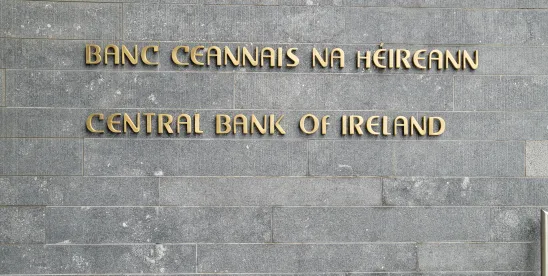The Central Bank of Ireland has introduced a macroprudential policy framework for Irish-authorised GBP-denominated liability driven investment funds (LDI Funds), to make them more resilient to shocks to UK interest rates.
The new framework applies to LDI Funds “whose investment strategy looks to match the sensitivity of their assets to UK interest rates or inflation to that of their investors’ pre-defined liabilities”. The following funds fall in scope:
- Funds which combine a GBP-denominated LDI strategy and another strategy; and
- Irish-authorised GBP denominated LDI Funds with non-Irish AIFMs.
In the Feedback Statement, the Central Bank has provided examples of the ways in-scope LDI Funds may describe their investment objectives.
Key elements of the macroprudential policy framework include:
- In-scope funds must maintain a minimum 300bps yield buffer, and the Central Bank has noted that this should be viewed as a minimum rather than a target. In certain cases, it may be prudent to maintain a higher yield buffer;
- Assets held within the yield buffer must be sufficiently liquid under normal and stressed market conditions;
- Assets owned by LDI Fund investors that the LDI Fund is authorised to use but which are external to the fund cannot be included in the yield buffer;
- The yield buffer may temporarily be disapplied by the regulator in the event of a significant, market-wide, shock to financial stability; and
- Where an AIFM expects a deviation from the buffer to be prolonged or substantial, the AIFM must make a real time notification to the Central Bank.
There will be a three-month implementation period for existing LDI Funds as of 29 April 2024. It is expected that LDI Funds authorised after 29 April will adhere to the yield buffer limit from inception.






 />i
/>i

